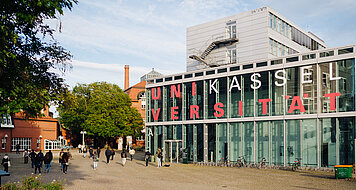
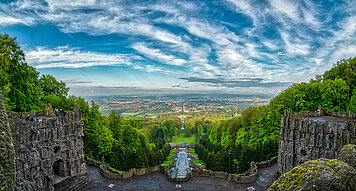

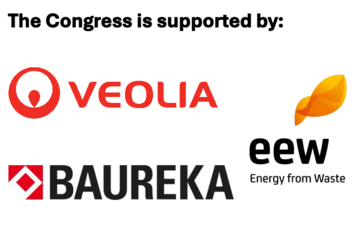
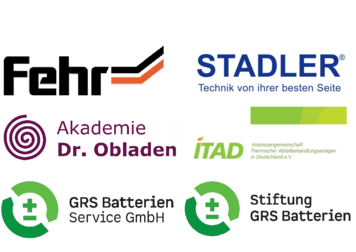
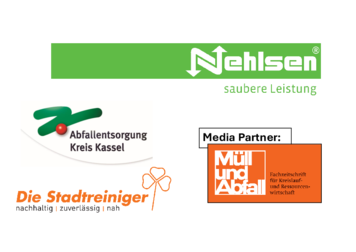
14th DGAW Science Congress on March 13 and 14, 2025 at the University of Kassel
Waste and resource management meets at the University of Kassel for an exchange of science and practice in 2025.
Host: Prof. Dr. David Laner
Venue: University of Kassel / Campus Center / Moritzstraße 18 / 34127 Kassel
Background and aims of the congress
A key objective of the circular economy is to return as much waste as possible to the economy as a raw material and thus contribute to achieving the overarching goals of the circular economy - protecting people and the environment, conserving natural resources and protecting the climate. The transformation from a linear to a circular economy contributes to achieving these goals. Against this background, research is of considerable importance. The central objective of the annual DGAW Science Congress is to promote this research, and in particular the researchers involved.
Promoting young scientists
The congress sees itself as a platform on which the latest results of university and university-related research in the field of waste and resource management from completed master's theses and current dissertations that are at an advanced stage or about to be published are presented to the specialist public. The congress is supported by a scientific advisory board, which currently comprises around sixty professorships representing the majority of the German-speaking university landscape in this field. The congress is therefore aimed specifically at young academics and thus has a unique selling point in the industry's conference landscape. The advisory board supports the organization of the congress and the participants.
Platform for networking
The congress offers the ideal basis for networking between scientists and scientific institutions and with industry. It serves as a forum for industry to get an idea of the state of science and future developments and to establish contact with the participating scientists. The ideal conditions are in place for an intensive exchange over the two days of the congress. The scientific contributions to the congress will be documented in digital conference proceedings and can be accessed via the DGAW. This makes the congress an ideal forum for exchange between science and business, society, politics, administration, municipal companies and the (specialist) public.
The DGAW Science Award
An expert jury will award the prestigious DGAW Science Prize at the end of the congress. The three best contributions in each of the lecture and poster categories will receive a cash prize. As a non-cash prize, the winners will receive an annual subscription to Müll und Abfall, the specialist journal for recycling and resource management.
Procedure
Participants can apply for a lecture and/or a poster presentation. The number of presentations in the program is limited to approx. 20 due to time constraints. The submitted contributions will be selected by the scientific advisory board for a lecture or a poster. The topics of the poster presentations will be presented orally by the participants in short pitches on stage and presented in an exhibition forum. The talks and posters will be announced in mid-November 2024. The detailed programme will be prepared by the scientific organization. The conference will be chaired by the advisory board members.
Applications
Participants apply by submitting an abstract. The abstract should be one to a maximum of two pages and should be based on the requirements profile for writing abstracts. Submissions can be made in German or English. The congress language is German, lectures and poster presentations can also be held in English by arrangement.
The abstract is to be submitted with a submission form by email under the keyword Science Congress 2025 to: info@dgaw.de.
Submission deadline: October 11, 2024, contact person: Birte Turk (Tel. 0160-84300071)
Downloads
German versions: Flyer Call For Papers, profile of requirements for writing abstracts, submission form
English versions: Flyer Call For Papers, instructions for abstract submission, submission form
Participation fee
A fee of 180 € is payable for participation in the congress. This includes catering on both days of the congress, the evening event and the conference proceedings. Participation is free of charge for sponsors, press representatives, employees of the University of Kassel and last year's prize winners. Invoices will be sent out after the congress.
Registration
We kindly ask all participants (speakers, exhibitors, advisory board, sponsors, other guests) to register via the following link.
We would like to thank the sponsors
The event is supported by various private and municipal companies in the sector. We would like to take this opportunity to thank them for their support of this unique congress for young scientists. With your support, we can jointly advance innovative solutions for the circular and resource economy!
We would like to thank the scientific advisory board
At present, 59 chairs from German-speaking countries are represented on the advisory board:
Scientific organization
Prof. Dr.-Ing. Anke Bockreis (Univ. Innsbruck)
Prof. Dr.-Ing. Martin Faulstich (TU Dortmund)
Prof. Dr.-Ing. Sabine Flamme (FH Münster)
Prof. Dr. Kathrin Greiff (RWTH Aachen)
Prof. Dr.-Ing. Martin Kranert (Univ. Stuttgart)
Prof. Dr. Mario Mocker (OTH Amberg-Weiden)
Prof. Dr. mont. Michael Nelles (Univ. Rostock/DBFZ Leipzig)
Prof. Dr.-Ing. Peter Quicker (RWTH Aachen)
Prof. Dr.-Ing. Gerhard Rettenberger (HS Trier)
Prof. Dr.-Ing. Vera Susanne Rotter (TU Berlin)
Scientific Advisory Board
Prof. Dr. habil. Christian Abendroth (BTU Cottbus-Senftenberg)
Prof. Dr. rer. pol. Heinz Georg Baum (HS Fulda)
Prof. Dipl.-Ing. Frank Baur (HTW Saarland University of Applied Sciences)
Prof. Dr.-Ing. Burkhard Berninger (OTH Amberg-Weiden)
Prof. Dr.-Ing. habil. Dr. h.c. Bernd Bilitewski (Intecus GmbH)
Prof. Dr.-Ing. Carla Cimatoribus (HS Esslingen)
Prof. Dr.-Ing. Joachim Dach (Konstanz University of Applied Sciences)
Prof. Dr.-Ing. habil. Christina Dornack (TU Dresden)
Prof. Dr.-Ing. Silke Eckhardt (HS Bremen)
Hon. Prof. Dr.-Ing. Matthias Franke (Fraunhofer UMSICHT)
Hon. Prof. Dr. Henning Friege (Leuphana Univ. Lüneburg, TU Dresden)
Prof. Dr. sc. agr. Stefan Gäth (Univ. Gießen)
Prof. Dr.-Ing. Gilian Gerke (Magdeburg-Stendal University of Applied Sciences)
Prof. Dr.-Ing. Christian Gierend (HTW Saar)
Prof. Dr.-Ing. Daniel Goldmann (TU Clausthal)
Prof. Dr.-Ing. Susanne Hartard (HS Trier)
Prof. Dr. Andrea Heilmann (HS Harz)
Prof. Dr.-Ing. Stefanie Hellweg (ETH Zurich)
Prof. Dr. Peter Hense (HS Bochum)
Prof. Dr. Soraya Heuss-Aßbichler (LMU Munich)
Prof. Dr.-Ing. Robert Holländer (Univ. Leipzig)
Prof. Dr. rer. nat. techn. Marion Huber-Humer (BOKU Vienna)
Prof. Dr.-Ing. Eckhard Kraft (Univ. Weimar)
Prof. Dr.-Ing. Kerstin Kuchta (TU Hamburg)
Prof. Dr. David Laner (Univ. Kassel)
Prof. Dr.-Ing. Achim Loewen (HAWK Göttingen)
Prof. Dr.-Ing. habil. Anette Müller (Univ. Weimar)
Prof. Dr.-Ing. Annette Ochs (HS Wismar)
Prof. Dipl.-Ing. Dr. mont. Roland Pomberger (Univ. Leoben)
Dipl.-Ing. Dr. mont. Arne Ragoßnig (RM Umweltkonsulenten ZT GmbH)
Prof. Dr.-Ing. Hans-Günter Ramke (HS Ostwestf.-Lippe)
Prof. Dr. techn. Helmut Rechberger (TU Vienna)
Prof. Dr.-Ing. Alfons Rinschede (FH Gelsenkirchen)
Prof. Dr.-Ing. Stefan Salhofer (BOKU Vienna)
Prof. Dr. Miriam Sartor (TH Cologne)
Prof. Dr. rer. nat. Liselotte Schebek (TU Darmstadt)
Prof. Dr.-Ing. Helmut Seifert (KIT)
Prof. Dr.-Ing. Christian Springer (FH Erfurt)
Prof. Dr.-Ing. Rainer Stegmann (TU Hamburg)
Prof. Dr.-Ing. Iris Steinberg (HS Darmstadt)
Prof. Dr.-Ing. Ulrich Teipel (TH Nuremberg)
Prof. Dr.-Ing. Daniel Vollprecht (Univ. Augsburg)
Prof. Dr.-Ing. Renatus Widmann (Univ. Duisburg-Essen)
Prof. Dr. Henning Wilts (HafenCity University Hamburg, Wuppertal Institute for Climate, Environment and Energy gGmbH)
Hon. Prof. Dr. Martin Wittmaier (HS Bremen)
Prof. Dr.-Ing. Jörg Woidasky (HS Pforzheim)
Prof. Dr.-Ing. Christoph Wünsch (HS Merseburg)

